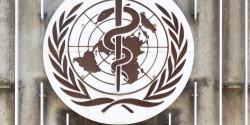Published: 29.06.2022

· The Intergovernmental Negotiating Body (INB), established to draft and negotiate a WHO international instrument to face future health emergencies, is currently continuing the discussion on the substantial elements of the agreement with relevant stakeholders (i.e. Bill and Melinda Gates Foundation, Clinton Health Access Initiative, International Planned Parenthood Federation, The Rockefeller Foundation) and Member States.
· The contents and objectives of the so-called “anti-pandemic accord” suggested by the States have been published by the INB in the document ‘Draft annotated outline’ and make manifest the disproportionated targets followed by the agreement.
· The Member States are discussing on elements such as empowering the WHO competences on regulate travel restrictions and issue binding recommendations or create an international vaccination registry for COVID-19 and all vaccines.
· The aim of establish a global health response to the announced future pandemics is in parallel being pursued by amending the International Health Regulation which already as the scope to prevent, protect against, control and provide a public health response to the international spread of disease.
· The INB has scheduled the aim to adopt the instrument by 2024 with a finalization of report to the Seventy-seventh World Health Assembly.
· The Polish Minister of Health has expressed full support to the project of creating a further global and supra-national response in the event of health threats.
After the first meeting of the Intergovernmental Negotiating Body (INB), held on the 24th of February 2022 to define the working method on the so-called anti-pandemic treaty, there have been other appointments where the potential substantive elements of the international instrument have been identified and the relevant stakeholders which can intervene in the discussion have been selected. On the 12th of April 2022, a public hearing took place to inform its deliberations in which also Ordo Iuris participated.
Currently, the negotiations on the so-called anti-pandemic treaty are continuing to carry out the consultations on the content of the accord with the relevant stakeholders selected by the INB and Member States. The next steps will be the identification of the provision of the WHO Constitution under which the instrument should be drafted (July 2022) and regional consultations between regional commissions divided by continents until October 2022, followed by the drafting of the agreement. At the end of these passages, a progress report will be delivered to the 76th World Health Assembly in 2023 with the aim to adopt the instrument by 2024.
On the side of the intentions set forth in the agreement, the substantial elements of the treaty have been published in the document called ‘Draft annotated outline of a WHO convention’ and cover a wide range of topics firstly aimed at creating a global governance and a national commitment in the public health sector under the principles of equity, sustainability and non-discrimination. This multisectoral coordination, precisely, as can be read in the scopes outlined, should include goals such as the ‘strengthening of the national regulatory authority capacity on licensing medical countermeasures’, ‘the adoption of global and national measures to accelerate emergency approval procedures’, ‘access to quality, agile, and sustainable health services for universal health coverage’ and gender equality ‘in the global and regional decision-making processes’ . Within this framework, moreover, a group of UN experts has already requested Member States to ensure that the new international instrument will be grounded in human rights and centred, in particular, on women, girls and other vulnerable groups and marginalized populations rights to the highest attainable standard of physical and mental health without discrimination.
More specifically, dwelling on the key issues that the agreement should address, it can’t be overlooked that the INB has further published the ‘Draft Outlined Consolidated’ which also constitutes a basis for consideration and discussion among the parties and reflects the inputs that Member States have provided to the INB. In this document a long and wide list of items have been identified as targets, including, for example: “Enhanced collaboration between health and finance sectors in support of universal health coverage”; “Empower WHO to review the travel restrictions and issue binding recommendations in this regard”; “The possibility to establish an obligation of a State Party to request assistance when the size of pandemic significantly exceeds the national public health and health delivery systems capacity”; “Full respect for human rights, including non-discrimination”; “International vaccination registry for COVID-19 and all vaccines”.
In the light of the above, Ordo Iuris Institute asked the Ministry of Health to provide public information about the process in progress within the INB, has confirmed that consultations are currently underway with WHO Member States on key areas that could be included in the future document.
Ministry of Health's position on the document was included in the speech delivered by Minister Adam Niedzielski to the Second Special Session of the World Health Assembly, held in Nov. 29-Dec. 1, 2021, where the WHO’s conclusions on the topics have been – as he said - ,,defined in line with Poland’s priorities”, manifesting full support to the WHO’s main priorities. In that occasion, indeed, the Minister verbatim stated that: “[…] I’m glad that WHO conclusions are in line with Poland’s priorities. As well as Organization’s main priorities, global health threats should be focused on four dimensions: prevention, preparedness, response and recovery afterwards. We are aware of that, ready to act and fully support them. Nevertheless, we call upon member states to continue in the future discussions to be constructive, inclusive, consensus-based with a view to strengthening global preparedness. It is not a document or an instrument that is the goal of this process, but strengthening our preparedness for global health threats to keep everyone safe. Poland is convinced that WHO must be a part of strengthening global preparedness and remain a leader in global health safety. Honourable Director-General, Dear Regional Directors, global solidarity is a key to preventing and fighting current and future global health threats. Transparency, information sharing and a strong leadership are crucial. Regardless of the label we put on the final product – a pandemic treaty, a convention or an agreement – the most important are taken actions, cooperation and mutual trust. Poland supports these efforts”.
In addition, it must be finally considered that, the goal of strengthening WHO's preparedness and response to public health emergencies, is not only limited to the drafting of an international instrument, but is also focused on the amendment of the International Health Regulation, a legally binding agreement –in effect for 196 States – which already regulate the capability to detect and report potential public health emergencies worldwide. The 75th World Health Assembly, held in Geneva from May 22-28, 2022, indeed, has further agreed to the creation of a Working Group on Amendments to the International Health Regulation (WGIHR) to present a package of amendments for consideration by the 77th World Health Assembly. The goal of strengthening WHO's response and leadership in global health emergencies, in essence, is intended to be achieved by coordinating the IHR amendment work with the process of drafting an international instrument of the INB.
"In conclusion, what we are witnessing by monitoring the ongoing negotiations on the international treaty under negotiation is that the substantial elements on which the consultations are going on confirm in a neat way the will to introduce in the international legal landscape one more binding instrument aimed at creating a transnational-cosmopolitan approach to face health threats by transferring a great portion of national competences to WHO. This arises the question on the effectiveness of such a global coordination when countries like Sweden, during the pandemic, demonstrated how a local response, without nation-wide imposed lockdowns, resulted in a lower mortality rate recorded in comparison with countries that implemented different policies. This way of proceeding can be even more effective than a devolution to bodies not elected by the people of powers closely related with the restriction of fundamental freedoms.
In this same context, furthermore, arises also the problem of the independent nature of the WHO. The fact that stakeholders involved in the preparatory work include organisations that have made clear over the time their political and ideological positions on human rights, abortion and democracy (e.g. Planned Parenthood Federation or Bill & Melinda Gates Foundation), signifies that an objective and independent policy-making by the WHO would be impossible, with the risk of promoting and imposing measures that reflect political positions far from the same citizens which would be the recipients of those measures” – stressed Veronica Turetta, analyst in Ordo Iuris International Law Center.

19.04.2024
Although Russia exerts real and dangerous influence in the West, the traditional conservative Right is nevertheless being falsely accused of pro-Moscow activities. Among the methods most commonly used are:

19.04.2024
· A draft directive on combating violence against women is being discussed in the European Parliament.
· This draft may raise concerns due to its extremely broad definition of ‘violence’, as well as the government’s mandate to censor ‘offensive’ online content or its obligation to combat ‘harmful gender stereotypes’.
· The directive may also entail a restriction of the presumption of innocence in cases of sexual offences, by indirectly presuming a man’s guilt.

22.03.2024
A few weeks ago the European Parliament adopted a directive on „protecting persons who engage in public participation from manifestly unfounded or abusive court proveedings” („strategic lawsuits against public participation” - SLAPP).

13.03.2024
– European countries are taking advantage of the ignorance of public opinion in their countries in order to criticise Donald Trump at every opportunity.